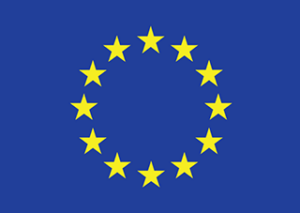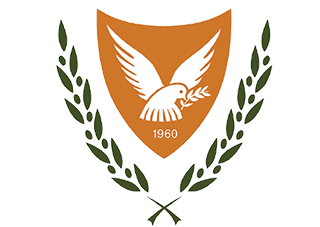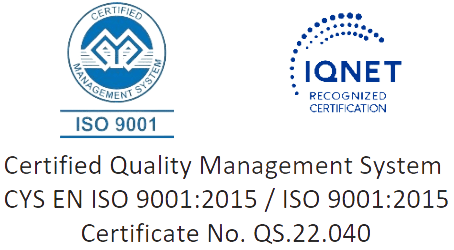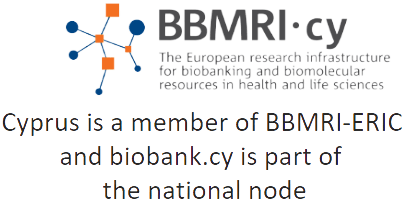The Center of Excellence (CoE) is dedicated to seamlessly integrating an Ethical, Legal, and Social Issues/Implications (ELSI) framework into all aspects of its operations.
The framework refers to the approach and set of practices implemented to address related ELSI within its activities. This is paramount to ensuring the alignment of biobanking and biomedical research with EU regulations, national laws, and ethical standards.
The CoE’s ELSI framework encompasses four key areas the: ethical oversight, legal compliance, ELSI research, and ELSI education
Ethical Oversight: The CoE has instituted a robust governance structure that also includes bodies responsible for ethical oversight, namely the Internal Ethics Advisory Board (IEAB), External Ethics Advisory Board (EEAB), and the Data/Samples Access Committee.
These bodies play a pivotal role in oversight, guidance, and decision-making. Ethical oversight involves reviewing research protocols, informed consent processes, and the broader legal and ethical implications to ensure adherence to established standards.
The Biobank has approval from the Cyprus National Bioethics Committee (CNBC) (EEBK/EΠ/2011/04) and all research projects receive a separate approval from the CNBC.
Legal Compliance: Ensuring compliance with national, EU, and international laws and regulations is a top priority for the CoE. Addressing concerns related to personal data protection and safeguarding research participants’ rights is of utmost importance. Regular updates to procedures, security controls, and documents are conducted to align with the General Data Protection Regulation (EU) 2016/679 (GDPR) and relevant national legislation.
Research on ELSI: The CoE actively engages in research to explore ELSI topics, with a focus on generating impactful material at the national, European, and international levels. A recent project is the study on individuals’ perspectives on genetic testing and research led by Dr Georgia Charalambidou and Dr Andrea Christofides under the supervision of Professor Constantinos Deltas. The primary objectives of the project are twofold: First, to provide valuable insights for research purposes, intending to contribute to the scholarly
landscape through the publication of peer-reviewed articles. Second, the project aspires to lay a solid foundation for the future creation of educational tools, including videos and workshops, tailored to engage diverse stakeholders such as research participants and the wider public. Our research is approved by the Cyprus National Bioethics Committee and the questionnaire is anonymous.
Education on ELSI: The CoE prioritizes the education of individuals on ELSI in biobanking and biomedical research. Conducting training workshops for various audiences, including nurses of the CoE and the State Health Services Organisation (SHSO), as well as lyceum students during the Summer Academies of UCY, has been a key initiative. Collaborative endeavors with the CNBC, such as the seminar “Biobanking and Bioethics” in 2022, and more to come, contribute to the education of researchers and stakeholders interested in the ethical and legal aspects of biomedical research.
ELSI plays a critical role in advancing medical knowledge responsibly and fostering trust among stakeholders, including research participants,the community, and regulatory bodies.
Through these comprehensive activities, the CoE is dedicated to upholding ethical standards, ensuring legal compliance, conducting impactful research, and educating a diverse range of stakeholders in the field of biobanking and biomedical research.
This section contains information on ELSI related matters relevant to medical research and biobanking.
DATA PROTECTION
Privacy Notice and Cookie Notice:
- Website Privacy Notice (https://biobank.cy/privacy-notice/)
- Cookie Privacy Notice (https://biobank.cy/cookie-policy/)
Your Rights:
- Your rights (https://biobank.cy/participants-rights/)
- How to submit a request regarding your rights: You can exercise your rights at any time by sending a letter or email to [email protected] or Information rights request form (https://biobank.cy/contact/)
How to report a data protection incident:
If you believe that a data protection incident has occurred, contact us immediately on 7777 1838 or +357 22892815 or by emailing [email protected] outside office hours.
Office of the Commissioner for Personal Data Protection:
https://www.dataprotection.gov.cy/dataprotection/dataprotection.nsf/home_el/home_el?opendocument
LAWS, REGULATIONS AND TREATIES
GDPR
Regulation (EU) 2016/679 of the European Parliament and of the Council of 27 April 2016 on the protection of natural persons with regard to the processing of personal data and on the free movement of such data, and repealing Directive 95/46/EC (General Data Protection Regulation) EUR-Lex – 32016R0679 – EN – EUR-Lex (europa.eu)
Law providing for the Protection of Natural Persons with regard to the Processing of Personal Data and for the Free Movement of such Data of 2018 (Law 125(I)/2018)
Greek: http://www.cylaw.org/nomoi/enop/non-ind/2018_1_125/index.html
Unofficial translation: https://www.dataprotection.gov.cy/dataprotection/dataprotection.nsf/2B53605103DCE4A4C225826300362211/$file/Law%20125(I)%20of%202018%20ENG%20final.pdf
Directive on privacy and electronic communications
Directive 2002/58/EC of the European Parliament and of the Council of 12 July 2002 concerning the processing of personal data and the protection of privacy in the electronic communications sector. EUR-Lex – 32002L0058 – EN – EUR-Lex (europa.eu)
Charter of Fundamental Rights of the European Union
The Charter of Fundamental Rights of the European Union enshrines into primary EU law certain political, social, and economic rights enjoyed by EU citizens and residents. EUR-Lex – 12012P/TXT – EN – EUR-Lex (europa.eu)
Convention on the Rights of the Child
The United Nations Convention on the Rights of the Child (commonly abbreviated as the CRC or UNCRC) is an international human rights treaty which sets out the civil, political, economic, social, health and cultural rights of children. https://www.ohchr.org/en/instruments-mechanisms/instruments/convention-rights-child
OTHER RESOURCES
Resources on Incidental Findings (BBMRI-ERIC) Resources to Learn More on Incidental Findings – BBMRI-ERIC






